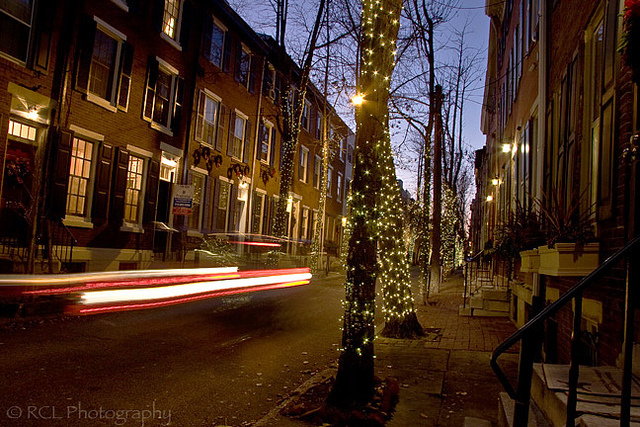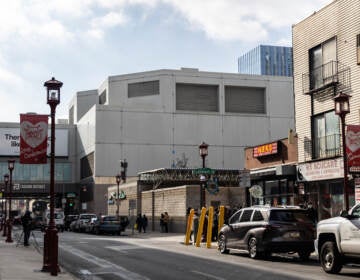Reading Roundup: Detroitism to Dream Cities, ‘Death and Life’ to Philly’s Image Problem

In case you’re stuck with travel delays, killing time at your desk next week, or needing to tune out from family time, Eyes on the Street’s got you covered with some vacation reading recommendations to keep you busy.
Here’s my selection of 10 pieces from 2011, as well as some year-end roundups from elsewhere, to get your wheels turning.
The Atlantic Cities picked through this year’s best CityReads (via longform.org) and comes up with some absolute must-reads, and even some must re-reads. My highlights from their list are both about Detroit.
- In “Detroitism,” by John Patrick Leary [Guernica] examines the fetishization of urban decay, and what that says about us, from the “mecca of urban ruins,” Detroit. It is one of my must-reads of the year.
- In “Destroying Detroit (in Order to Save it),” [GQ] Howie Kahn rides around with a demolition crew that’s helping the City of Detroit to bulldoze thousands of the city’s 70,000 vacant houses. Will all of that demolition help Detroit start over?
2011 was in many ways a year of talking about Jane Jacobs.
- “The Use of Old Buildings, 50 Years Later” [Polis] looks back at the 50th Anniversary of Jane Jacobs’s Death and Life of American Cities, and reminds us of her thinking that old buildings provide space for entrepreneurship. Older buildings are more likely to charge lower rents, so by preserving them (officially or not) cities create affordable spaces for new ventures to start-up and grow.
- And while we’re on the subject of 50 years of Jane Jacobs’ Death and Life, another big piece this year was Anthony Campanella’s essay, “Jane Jacobs and the Death and Life of American Planning,” wondering about the trivialization of professional planning. Campanella sees plannerly might (vision, authority, professionalism) atrophying by deference to the grassroots. He says that thanks to the reification of Jacobs, planners don’t exercise their expertise and muscle to do significant physical planning that could help solve serious problems. Do you agree? Does the pendulum need to swing back a bit?
Preservation got raked over the coals by Rem Koolhaas, who sees it as an uncreative and past-obsessed field that lacks intellectual rigor. But does Rem have it right? Are preservationists holding us hostage? Had he looked closer he would have seen what the field is actually doing in many cities, which looks nothing like the portrait he paints. No matter.
- In response to an earlier anti-preservation essay by Koolhaas comes one of my favorite pieces of the year, Call to Account! A case for active preservation, written by Mario Ballesteros in domus. The piece is a bold reminder of what preservation is actually good for: sustainability, deeper cultural understandings, and inclusion.
Salon.com has a new series called Dream City asking “How should we build the cities of our dreams? How do we create the urban spaces which reflect our values and the ways we want to live?” Among the fun topics Dream City has explored:
- Are freeways doomed? The war on auto-centricity is back and better than ever. Cities are leading the charge to tear down freeways.
- In the future urban bikers go faster than cars. What does creating a slow city look like and why is that a good idea?
And from elsewhere:
- Grist.org’s roundup of city stories from this year includes one about “bright flight” and the slow pace of urban growth.
- James Howard Kunstler finds The old American dream is a nightmare. In an interview with Grist, Kunstler talks about how skyscrapers won’t save us, why the New Urbanists have won, and of course peak oil. It’s classic cranky, smart Kunstler and reminds me of why I enjoy his writing.
- In Flying Kite, Sue Spolan wondered, “Does Philly have an image problem?” and finds a really positive place underneath the veil of a Debbie Downer sense of self. For 2012, our new year’s resolution should be to look on the bright side a little more often.
The Buzz is Eyes on the Street’s morning news digest.
WHYY is your source for fact-based, in-depth journalism and information. As a nonprofit organization, we rely on financial support from readers like you. Please give today.







